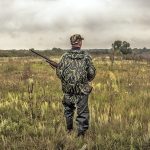Declining participation, the obesity epidemic, federal funding, consolidation
There seems to be no end to the list of issues that the Bicycle, Outdoor, and SnowSports industries must deal with. However, judging by the SRO crowd at the Environmental Sustainability session at the recent Outdoor Retailer Winter Market, “Going Green” is taking center stage, at least in the outdoor industry.
The meeting looked at a recent survey sent to all OIA rendezvous attendees. The survey, described as a “snapshot in time and not a universal truth,” was designed to evaluate each companys level of environmental sustainability and to provide a glimpse of the outdoor industry as a whole.
Instead of dwelling on minute details in the data, the session focused on what can be done moving forward and developed a three point action plan. First, a working group will be formed to draft an industry platform document on environmental sustainability that will then be circulated for comments and improvements; second, collaborative work on water-based adhesives in footwear will be led by Terry Kellogg of Timberland; and third, the group will request OIA involvement in moving the issue forward within the industry.
With all of this attention coming from leaders in the industry, and from consumers, there is a developing “me too” crowd that wants to capitalize on what they view as a trend that will help boost sales. This is not to say that everyone in the industry is simply green-washing their company in order to hide skeletons in their closet, but the fact that 57% of the survey respondents said their environmental programs were driven by “importance to brand,” shows that there is a problem.
On the positive side, the survey did show that environmental programs are a “Core Value” among 80% of the companies who responded. Likewise, most companies in the Bicycle, Outdoor, and SnowSports industries take their commitment to the environment very seriously. Many have even built their brands around efforts to preserve the environment.
While there are a number of examples of companies that are making a difference here, BOSS has looked at the best-in-class environmental efforts at Nikwax and Teko.
Nikwax founder and managing director, Nick Brown has built an environmentally sustainable company in a corner of the outdoor industry dominated by chemical companies. Nikwax refuses to use damaging or harmful chemical compounds in their waterproofing formulations. Instead, the company has opted to develop new scientific approaches to create products that work better and are safer for the planet and for people. The company is now launching the Nikwax Eco-Care Program, an environment educational program in North America.
Whereas Nikwax has excelled in revolutionizing a high-impact industry, Teko has taken socks, a category that most consumers see as harmless for the environment, and pushed to make the smallest environmental footprint possible. Teko founder, Jim Heiden has decided to only use sustainable materials in all of the companys socks-sustainable Merino wool, organic cotton, and recycled polyester. Additionally, 100% of the electricity used in operations and manufacturing is offset by the purchase of clean, sustainable American Wind.
On the opposite side of the equation, the length to which some manufacturers will go to paint their company green borders on ridiculous. In a recent Boston Globe article, the author wrote about a product found at Lowes that was touted as containing “no old-growth or rainforest timber.” The product was a carpenters level fabricated entirely out of metal and plastic.
Additionally, many claims made on various hang-tags, POP displays, and packagings are not regulated in any way, which many manufacturers have not hesitated to abuse. According to the consumer watchdog group, eco-labels.org, the term “environmentally friendly,” seen on products ranging from household cleaners to bicycle chain lube, is in many cases misleading.
“Without more specific information, there is no way to determine whether products labeled environmentally friendly are in any way better for the environment or cause less harm than other products,” the organization says. “The U.S. Federal Trade Commission and the International Standards Organization consider this claim to be too vague to be meaningful to consumers. The FTC guidance requires manufacturers to either avoid such terms or substantiate and qualify them to avoid misleading consumers.”
Similar warnings were given about the terms, “earth smart,” “eco safe,” and “cruelty free.”
Even the term “recycled,” which is so prevalent in nearly every industry, has no regulations surrounding its use. Although, the FTC has issued some guidance, which states, “ recycled claims may be used for products or packaging that contains either pre-consumer or post-consumer recycled materials.”
“The type of recycled material or the portion of post-consumer content is not required to be listed. Unless otherwise specified by a certification program, there is no organization behind this claim other than the company manufacturing or marketing the product.”
Eco-labels.org states that labeling a product as “recycled” is neither verifiable nor consistent to a standard.
While these claims or labels are not always blatant attempts at green-washing, the lack of regulations surrounding them demonstrates the importance of various independent certification processes, such as Certified Organic, or the stringent ISO 14000 Certification.
For example, Certified Organic, Inc. verifies that farmers and producers meet the standards set by the USDA National Organic Program, and the company makes information about funding and its board of directors publicly available. The USDA has explicitly prohibited the organization from having any conflict of interest. While there is some controversy about the stringency of this certification process, when it comes to textiles, the Certified Organic label ensures that the company has at least 95% organic material in that product.
While the Certified Organic label does ensure that a specific product meets USDA criteria, it does not make any claims about other practices within the company. ISO 14000 takes a whole company approach to the certification process. The process goes through many steps, including prioritizing the environment, integrating environmental aspects into design and development, and responsibly communicating environmental actions.
Even though many companies in the Bicycle, Outdoor, and SnowSports Industry are best in class examples of sustainable manufacturing, the simple fact remains that every product on the retail floor has some sort of environmental impact, no matter how dedicated the manufacturers and retailers are to sustainability. The true leaders in the effort to reduce the industrys impact are the ones who work together to develop new processes, new technologies, new policies, and new materials.
Those that invest real resources, not just the obligatory recycling effort but also in the fundamentals behind the business and through activism in the real world should be applauded — and supported.














